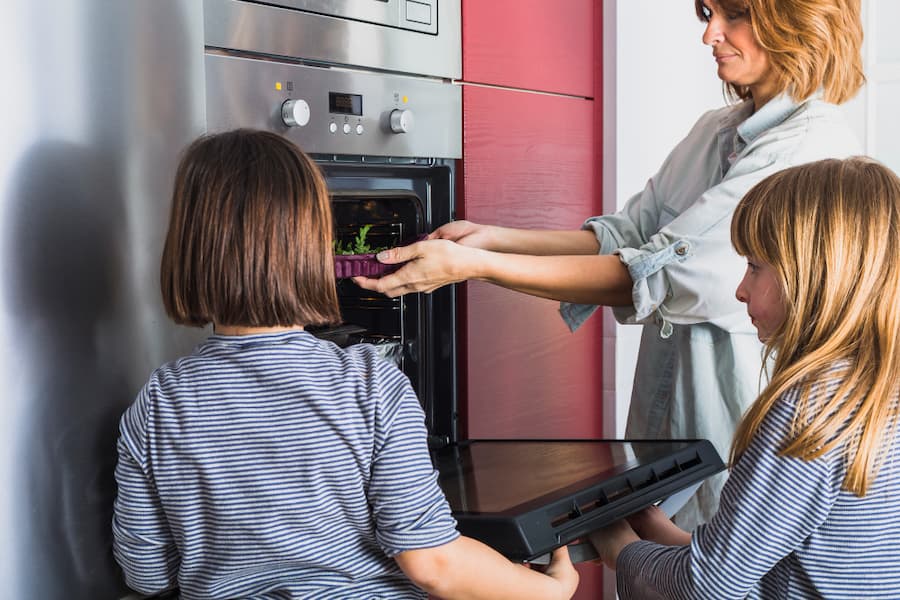From restaurants and bakeries to school cafeterias and catering businesses, the commercial oven is the most crucial kitchen equipment. This investment affects the speed, consistency, and quality of everything you offer. Choosing a commercial oven for a business is difficult. This comprehensive guide covers all the crucial factors to help you pick the best one.
Understanding the Different Types of Commercial Ovens
To choose a commercial Rational Oven, first understand about the different types and their functions. Commercial kitchens utilise convection ovens because fans evenly distribute hot air. They cook faster and always yield the same results. They’re perfect for baking pastries, roasting veggies, and evenly cooking meats. Cooks can precisely control temperature and moisture with combi commercial oven because they employ convection heat and steam. If there are several people using the kitchen, these ovens are excellent for changing things about.
Deck ovens heat directly from stone or ceramic decks, creating a bottom crust that conventional ovens cannot achieve, hence many pizzerias and bakeries utilise them. Fast-paced pizza companies and sandwich cafes use conveyor ovens. They are perfect for repetitive activities since food cooks on a belt at a consistent pace and temperature. Tandoor, smoker, and rotisserie ovens are specifically designed for Indian, barbecue, and meat cooking. Knowing what each oven offers allows you to select the correct one.
Assessing Your Menu and Cooking Style
Menus should be the most crucial factor in choosing. The best oven for you depends on what you cook, how you cook it, and how often. You may require a convection or outdoor oven if your business bakes. You don’t need much equipment because a combi oven can steam veggies, bake bread, and roast meats. A deck or wood-fired oven is perfect for pizza restaurants. For hundreds of meals each hour, a conveyor oven may be better.
Also consider how much food you want to cook. Are you producing little amounts of food all day or a lot rapidly during busy times? A weak oven will quickly become an issue in a busy kitchen. Small businesses may squander space, energy, and money with too-large units. If you want a decent return on your investment, check sure the oven’s features and capacity meet your daily needs.
Compliance, Safety, and Hygiene Considerations
All commercial kitchen equipment must meet local health and safety standards. Check your local food, fire and ventilation safety standards before buying an oven. If your location requires gas or electric oven certificates or wiring, be sure your model is compliant.
Easy cleaning is another consideration. Stainless steel, detachable racks, and self-cleaning ovens make cleaning easier. This maintains cleanliness and prevents cross-contamination. Drop trays or grease management systems simplify cleanup in some models. Maintaining an oven is essential for a clean, safe, and efficient kitchen.
Factoring in Staff Skill Level and Training
How good an oven is depends on its users. New features may improve nutrition and productivity, but they may also need additional staff training. Combi ovens offer touchscreen controls, configurable cooking cycles, and humidity settings. Without these characteristics, your workers may not utilise the equipment properly or at all.
However, several manufacturers now create ovens with simple controls and interfaces, making them easier to operate. If you have seasonal or temporary kitchen workers, consider an easy-to-use oven. To help your personnel maximise your new equipment, several manufacturers provide training or on-site assistance.
Anticipating Future Needs and Business Growth
You should examine more than your present demands when choosing a commercial oven. If you wish to expand your menu, open additional locations, or cook more, your oven should be able to match. Buying a more flexible or bigger unit today may mean you don’t need to replace it as soon.
Flexibility is key. Look for commercial ovens that can be upgraded as needed. Combination ovens can adapt to new recipes and service demands since they offer many cooking modes. Growing without major changes is possible with modular or stackable ovens. Choosing equipment for future expansion will help your company flourish.
Weighing Brand Reputation and After-Sales Support
Commercial oven brands abound, but not all are good. Consider the ovens’ manufacturer’s reputation. Choose brands with superior products, reliability, and after-sales service. When your oven goes down during a busy service period, a good warranty and fast customer assistance can help.
Talking to equipment vendors, reading firm owner feedback, and visiting commercial oven with similar models may help you learn more. You may try or see equipment before buying it from some firms. Keep in mind how important safety is. Knowing help is there when needed may be as important as the oven’s first day performance.
Conclusion
It’s not enough to merely box off a list of characteristics when choosing a commercial oven. You need to find one that fits in with the way your kitchen works every day and helps you reach your company goals. It is the tool that runs your menu, controls your workflow, and affects how consistent each meal you serve is. When you think about space, energy usage, staff skill levels, and the possibility of future expansion, the choice is less about the equipment and more about the strategy. A well-chosen oven may make your food taste better, help your team work more efficiently and in the end, help your reputation and your financial line. This isn’t just a purchase; it’s a long-term relationship with one of the most crucial things in your kitchen.



